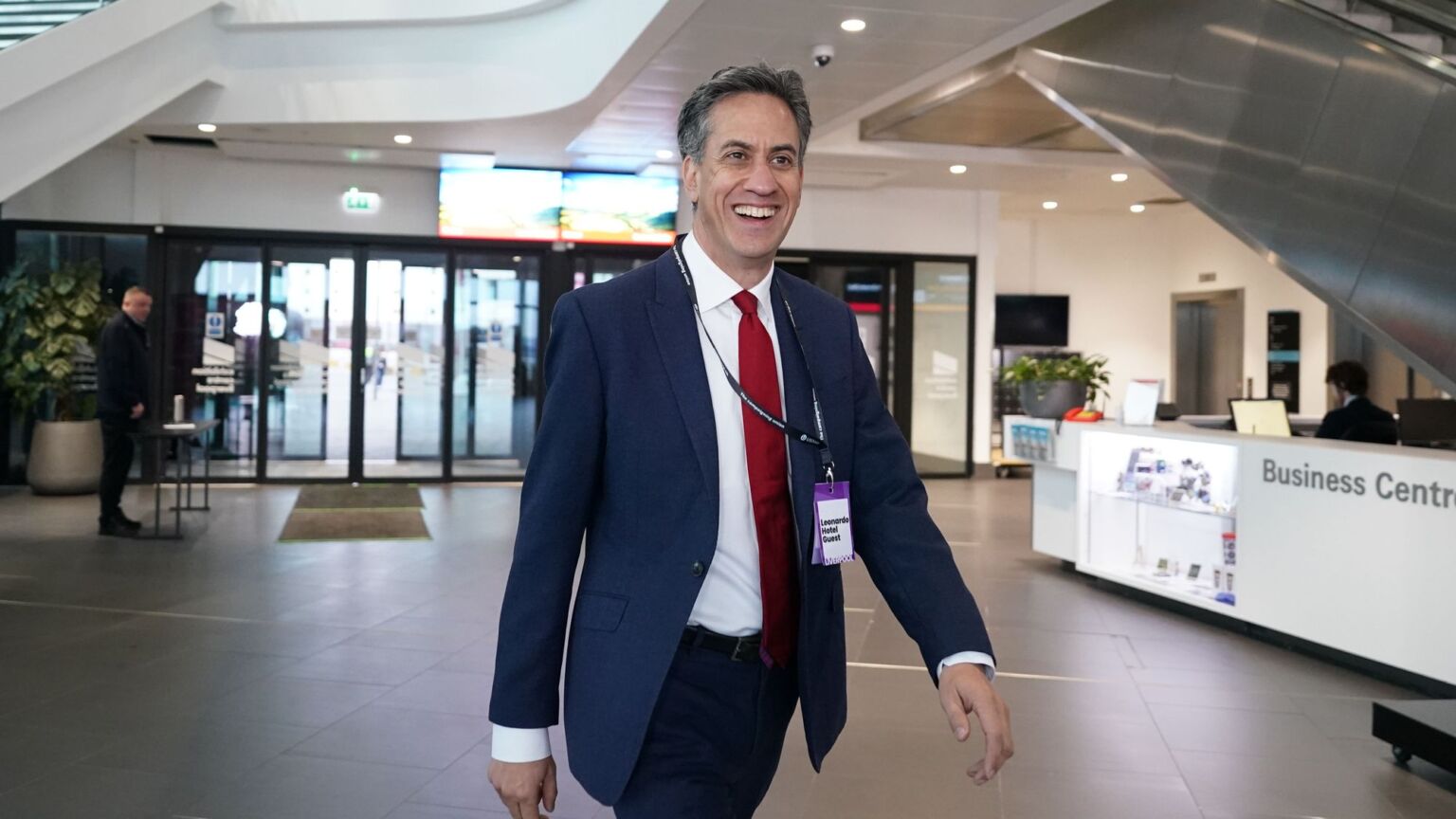Solar panels on schools is Miliband’s silliest idea yet
Labour is set to spend hundreds of millions on a pointless act of green virtue-signalling.

Want unlimited, ad-free access? Become a spiked supporter.
UK energy secretary Ed Miliband made a major announcement last week, although few people noticed it. Great British Energy (GBE), an £8 billion quango created by Labour when it came to power last year, announced it will spend £180million on putting solar panels on schools and hospitals. ‘This is our clean-energy-superpower mission in action, protecting our public services with lower bills and energy security’, Miliband said in the press release. This power, he said, would be ‘cheap’ and ‘homegrown’.
Yet as is so often the case with Miliband, the bluster bears minimal resemblance to reality. Indeed, the chances of your local hospital having solar panels installed, let alone having its energy prices reduced, remain incredibly slim. According to the announcement, solar panels were installed at just three schools and five NHS sites over the summer, with eight more schools set to follow ‘over the autumn’. Miliband expanded on this pledge at the Labour Party conference in Liverpool this week, promising that 45 more schools and 50 NHS sites get solar power on their roofs – however, no deadline for this was mentioned.
To put that into perspective, that is 48 primary schools and 55 NHS sites across the country, out of nearly 21,000 UK primary schools and more than 10,000 buildings on the NHS England estate.
Looked at as a percentage of a typical school or hospital’s budget, the figures touted by Miliband and GBE are negligible. An average English primary school with 275 pupils, costing £6,275 a year each, could, through solar power, gain annual savings of ‘up to £25,000’. That’s about 1.4 per cent of its budget. It’s the same story with NHS facilities, ‘potentially’ saving £45,000 a year with Miliband’s panels. Even if we take the budget of a typical hospital as a modest £100million, the savings made are infinitesimal.
The ‘Great’ in GBE’s moniker, and Miliband’s waffle about the UK becoming a clean-energy superpower, are hardly justified by the scale of GBE’s achievements to date. After an £8 billion investment and a promise to employ 20,000 workers, it is yet to even find an office in Aberdeen, the city chosen for its headquarters. No one is quite sure what this money is for or what the real purpose of GBE is supposed to be. Aside from putting solar panels on schools and hospitals, the only other project it’s involved in is an £800million investment in factories making parts for offshore wind turbines.
What’s more, despite Miliband’s claims, there will be little that’s ‘homegrown’ about the power from his solar panels. They will instead be made in China, from minerals mined there and in Africa.
This leads to another problem. In April, an amendment to the Great British Energy Act 2025 banned GBE from engaging in forced labour in its supply chains. This is no easy undertaking, considering solar-panel production is dominated by China, while most copper is mined in inhumane conditions in the Democratic Republic of Congo. GBE will probably seek some kind of certification from the Solar Stewardship Initiative (SSI) and its ‘Supply Chain Traceability Standard’. However, the SSI seriously lacks credibility, not least because major Chinese manufacturers are among those drawing up the standards on forced labour.
At this point, we must really ask what purpose GBE is serving. Labour and Miliband have repeatedly promised that energy bills would come down thanks to GBE. Instead, the energy price cap has just increased, while the UK economy remains saddled with the highest industrial energy prices in the developed world. Betting the farm on solar is not going to change that. Not least because, according to the World Bank, the not-so-sunny UK has some of the ‘least generous conditions’ for solar generation in the world.
Like many of Miliband’s dreams, GBE is fast turning into a nightmare for the British people.
James Woudhuysen is visiting professor of forecasting and innovation at London South Bank University. He tweets at @jameswoudhuysen.
You’ve hit your monthly free article limit.
Support spiked and get unlimited access.
Support spiked and get unlimited access
spiked is funded by readers like you. Only 0.1% of regular readers currently support us. If just 1% did, we could grow our team and step up the fight for free speech and democracy.
Become a spiked supporter and enjoy unlimited, ad-free access, bonus content and exclusive events – while helping to keep independent journalism alive.
Monthly support makes the biggest difference. Thank you.









Comments
Want to join the conversation?
Only spiked supporters and patrons, who donate regularly to us, can comment on our articles.